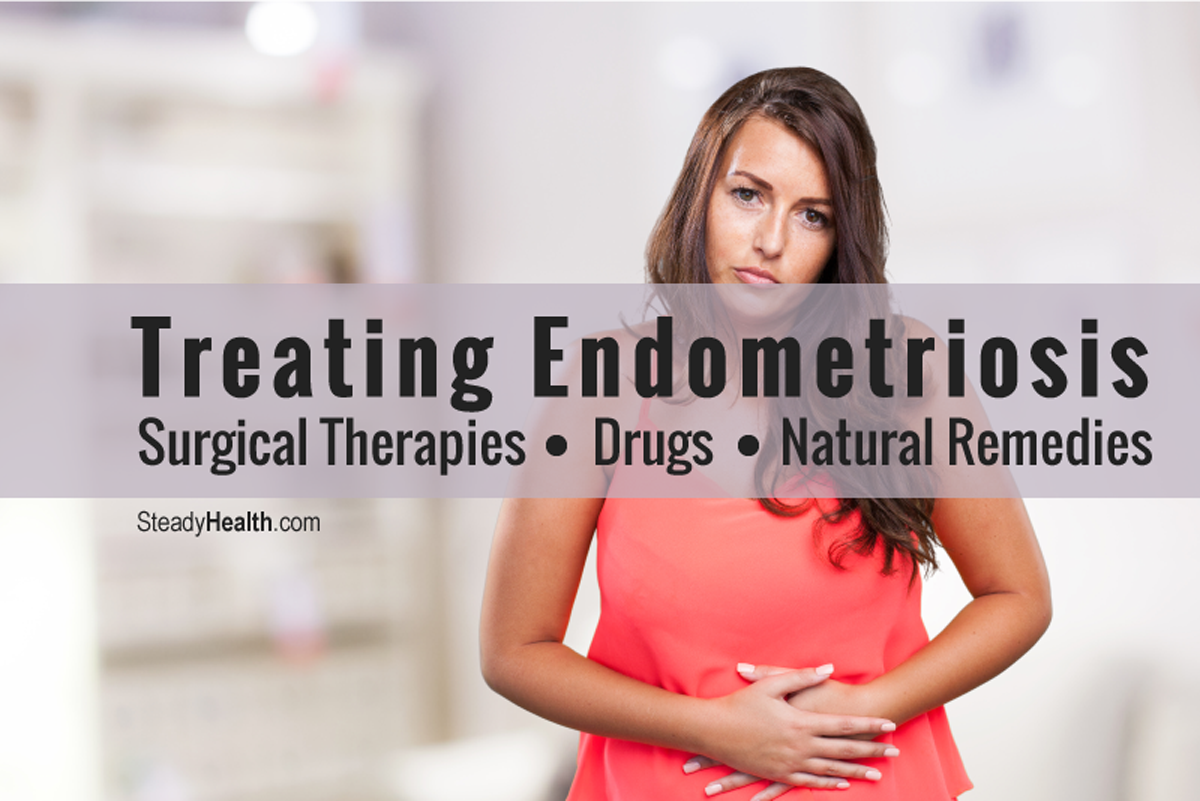Endometriosis is a gynecological disorder characterized by the presence of uterine tissues outside the uterus, in places such as the fallopian tubes or abdominal cavity. The tissue lining the uterus is called the endometrium and that is why this disease is named endometriosis. [1]
Many symptoms are associated with this disease. Endometriosis and infertility related to it are very concerning conditions. Endometriosis is a painful disorder. It causes back and abdominal pain and menstrual periods bring bothersome crampy pains with them. Painful bowel movements and painful urination can make periods very unpleasant. Sexual intercourse too becomes painful. [2]
Treating endometriosis effectively is an important concern. This condition doesn’t only affect sufferers physically but it has also been found to cause mental illnesses like stress and depression as well. These mental challenges occur because of the mentally traumatizing effects of the disease. Infertility caused by endometriosis is very damaging for mental health as many women dream of becoming mothers. Infertility is a common issue among women who suffer from endometriosis: according to studies, thirty to fifty percent of women with endometriosis experience infertility [3].
Endometriosis also affects a patient's social and work life. Crampy pain can lead to absence from work. Your quality of life gets worse because of the pain. The relationship between you and your spouse may also be affected. Painful sex leads to less frequent sex or sometimes even abstinence from sex. All these factors collectively affect your quality of life and your mental health. [4]
Hormones like estrogen play an important role in growth of such tissue. Normally, the grown endometrium in the uterus or womb is shed during menstruation. However, in the case of endometriosis, it becomes impossible to shed this tissue from the abdominal cavity, causing pain. This trapped endometrial tissue can cause adhesions and lead to the formation of cysts. [5]
This picture makes it clear that the treatment of endometriosis is necessary to preserve your health and quality of life. There are many options to manage endometriosis, like treating endometriosis with surgical and non-surgical therapies, drugs and natural remedies. Here is an overview of a few available treatment options.

Painkillers For Endometriosis
Non-surgical therapies are usually the first way to treat any disease, and endometriosis is no exception. Various different drugs are used to treat this painful condition so that patients can enjoy a better quality of life.
Hormonal Drugs To Treat Endometriosis
As some hormones play an important role in the growth of endometrial tissue outside the womb, counter-regulatory hormones can help to treat endometriosis.
Progestins, GnRH analogues, and androgenic substances can all help. [7] These hormonal medications use different mechanisms to manage the disease, with the ultimate goal being to shrink the size of the endometriotic tissue growing outside your uterus.
Conservative Surgeries For Endometriosis
Different types of surgical treatment options are available for the management of endometriosis. How to get pregnant with endometriosis is always a concerning question. Conservative surgeries are the ones which preserve fertility. As fertility is a desirable factor for most pre-menopausal women, conservative surgical therapies are frequently adopted.
Conservative surgeries are minimally invasive and involve laparoscopy or laparotomy. These procedures are carried out to remove implants of endometriotic tissue from the abdominal cavity. They use keyhole techniques that make recovering faster and easier. Studies show that up to 65 percent of women with fertile partners conceive after conservative surgery for endometriosis [8].
Removal Of The Womb And Ovaries
Either only the womb or both the womb and the ovaries are removed in the procedure. This procedure is a trusted and efficient one with high cure rates and minimal morbidity. [9] However, if the ovaries are also removed along with the womb (which provides better relief), estrogen replacement therapy is needed to help patients maintain a hormonal balance, and that may lead to recurrences.
Natural Endometriosis Remedies
While different surgical and non-surgical therapies and drugs are used for endometriosis treatment, natural endometriosis remedies are another option that provides relief without causing any side effects.
Castor oil, flaxseeds, hemp seeds, and wild asparagus can help with the disease. Pelvic massage and Sitz baths help to relieve pain as well. Chinese herbs have also proved to be a very effective remedy for endometriosis that does not lead to side effects, so long as they are administered by a reputable doctor of oriental medicine [10].
Studies show that natural endometriosis remedies have noticeable results, sometimes even comparable to the available drugs most often recommended by doctors. [11] So natural endometriosis remedies should be considered along with surgical and non-surgical therapies and drugs while treating endometriosis. They do not necessarily replace conventional treatment options, but improve sufferers' quality of life significantly. Always consult your regular doctor before trying an alternative remedy!
- Photo courtesy of SteadyHealth.com


Your thoughts on this